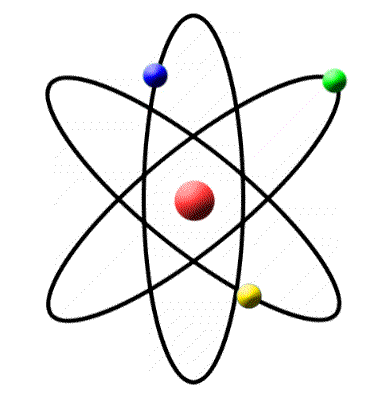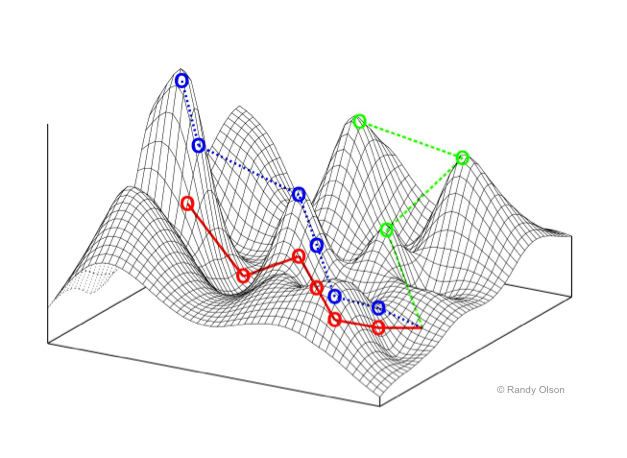From your high school classes, do you recall the image of an atom where electrons revolve around the nucleus (just like planets go around the Sun)? I’m talking about images of this sort:

This analogy of electrons as tiny planets is so common that most people imagine electrons to be like tiny spheres. This bothers me because it’s utterly wrong. Electrons are not tiny spheres. Instead, they’re like a cloud spread around the nucleus. In fact, even the cloud analogy is wrong. Human intuition never evolved to understand things at that scale, so the most accurate picture of an atom is given by the Schrödinger equation. Note that the quantum mechanical equation is not just a mathematical description, it is what an electron really is. By the way, here’s a photo of an atom that was taken recently.

Thinking in analogies is dangerous because they usually contain words that were originally defined in a totally different context. For example, in the electrons-as-tiny-spheres analogy, it’s impossible to understand what the word ‘sphere’ means at an atomic level. The same misapplication of words results in confusing philosophical debates (such as on free will, morality, the meaning of life, etc.) I wrote about this in a post titled philosophy is politics.
Another popular example of a misleading analogy that bothers me is the idea that evolution is a hill-climbing algorithm on a so-called fitness landscape. Many articles on evolution contain a mountainous graphic where higher peaks represent higher fitness and through natural selections, populations evolve from lower points to higher points in the landscape.

The image above is intuitive and elegant, but wrong. If you buy into the ‘fitness landscape’ analogy, you start thinking of evolution as finding the fittest organism in a fixed environment. In the real world, the environment is not fixed at all. If one organism becomes better, that decreases the fitness of other organisms (imagine the impact on fitness of herbivores when lions get stronger jaws). This means that the peaks you see in the fitness landscape cannot be a static image. The movement of an organism from point A to point B changes the terrain and it’s impossible to represent that in any manner that’s intuitive.
Bind yourself to reality
Ironically, what made me suspicious of analogies was an analogy itself. I came across the phrase ‘the map is not the territory‘ in one of my favorite books ever: ‘Rationality: From AI to Zombies‘. When we consciously think about our mental maps (like we’re doing right now), we know that they are mere abstractions and do not fully represent reality. However, the issue is that in our day to day thinking, we are programmed to refer to our mind maps for reasoning and hence always assume the map as reality. Knowing about cognitive biases is much easier than actually avoiding them. Similarly, it’s incredibly hard to be aware of when you’re misusing an abstraction to derive wrong conclusions about reality.
It pays to bind yourself to reality, to force yourself to see things as they are rather than as what’s simple. Analogies are easy to remember and that seducing nature makes us fall for them. It’s hard to ignore catchphrases such as ‘the survival of the fittest’ or ‘leaders eat last’ or ‘drugs are bad’. (It’s unfortunate that they’re a necessary evil for grabbing attention as nobody wants to read an article titled ‘some drugs are really bad, some are OK and some are good’.)
Because we’re drawn to simplistic explanations, we need to be cognizant of the fact that such simple explanations hide more than they reveal. If left unquestioned, these simple explanations take a life of their own inside our minds are pretty soon we start mistaking reality for these analogies. Due to confirmation bias, the explanations we use end up becoming stronger and harder to dislodge with time.
Know that electrons are not tiny spheres, fitness landscapes are not landscapes, the fittest does not always survive, leaders sometimes have to eat first and some drugs are beneficial.
Tame the engineer in you that longs for straightforward explanations. See the world as it is: full of complexity, with multiple systems interacting with each other in complicated and unpredictable ways. I know that deep understanding of reality is hard and takes immense effort. But the alternative is a mind full of wrong or misleading mental models.
Join 200k followers
Follow @paraschopra